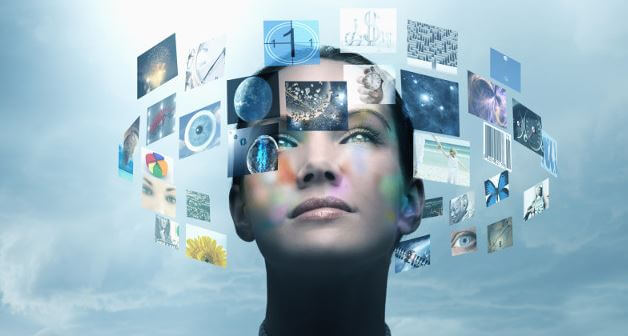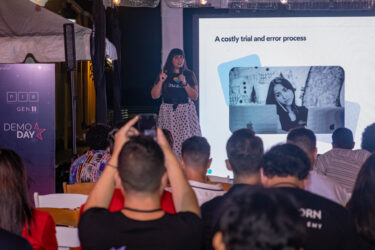Virtual Reality, VR, is becoming ever more popular. In time, we will use it in our daily lives and countless markets will have different VR applications.
At present, some fields of VR are growing and evolving faster than others due to clearer paths for commercialization. However, many companies that have started investing in VR are taking a big bet on this exciting new technology without knowing how it will generate revenue for them.
However, while sectors such as gaming and filmmaking are the obvious choices for the application of VR technology, other sectors are taking advantage of the breakthroughs too. Building surveyors, interior designers, online gambling, fitness and other markets are all queueing up to introduce their customers to the benefits of virtual reality.
Read more: Terence Mckenna’s ‘cyberdelic’ predictions for Virtual Reality 25 years on
So, here we take a look at the industries and sectors that are making surprising inroads in developing and using VR.
1) The VR design purpose
Interior designers and architects are taking advantage of available VR technology in a number of ways. These industries are using VR to walk clients through their digital plans, a change that will irrevocably alter the way we commission and approve designs. Celebrated 3D art designer Olivier Demangle even told Dezeen Magazine that the technology would turn designers into “magicians” and that they would be able to “change the world around [them] like a god”.
Decorilla is one such interior decorating company that allows customers to use VR to step foot into their newly designed rooms even before the plan has been executed. As a result, clients feel more informed and confident about their purchase and design decisions. Using virtual reality technology not only lets clients inhabit their designs and make quick changes about their spaces, but also allows designers to better visualize the final product.
2) The legal purpose
While the legal sector might sound like one of the least likely opportunities to make the most of VR technology, this could not be further from the case. Donan, an engineering firm now in its third generation, uses VR technology to provide a comprehensive view of buildings after an incident – such as a collapse – has taken place.
The company uses VR technology to create a 3D image, or 360 degree recording, at the scene of the incident. These recordings and images can then be presented to courts to provide detailed forensic evidence that traditional medias simply can’t.
By using robotic technology, Donan also keeps people out of harm’s way when they perform inspections of damaged buildings. In July 2015, Donan used Scio Surveyor 7, a military grade Packbot created by iRobot, to assist the Louisville fire department in their investigation of a fire that gutted the city’s historic Whisky Row. This saved the city time, money and provided increased safety for the firemen involved.
3) The online gambling purpose
Online gambling has traditionally been viewed as an anti-social pastime enjoyed by individuals with gambling addictions. However, it is an incredibly lucrative market. Currently the global online gambling market is worth $37 billion and is expected to grow at an annual rate of 11% a year, each year, until 2020.
With that it mind, it makes sense for online gambling platforms to make the experience as attractive as possible, adding further fuel to a meteoric increase in revenue. Enter SlotsMillion, a gambling platform that provides users with an opportunity to enjoy a more realistic casino experience while they play from the comforts of their own homes.
Players simply strap on a pair of VR goggles and jump into an immersive, virtual casino. It’s possible to see and interact with other online gamblers and provides a better experience than that of the traditional online gambling platform.
4) The fitness purpose
Gyms are also being phased out in favour of getting a virtual sweat on in locations that are both more convenient and less crowded. Of course, this makes total sense. Digital fitness – i.e. exercise apps such as Nike+, endomondo, and more – has seen huge global popularity. In fact, January 2014 saw 46 million people use fitness or health apps in the US alone. Incorporating VR technologies into the mix is just the next step in exercise’s internet evolution.
Icaros is German company that incorporates exercise and VR technology together. By combining a VR headset with an exercise machine, Icaros allows fitness enthusiasts to experience flight while giving their body a workout at the same time. In order to experience flight as seen through the VR headset, users need to balance their center mass to get the best results from the machine.
5) The health purpose
As well as addressing personal fitness, VR is also being used to assist people who are trying to lead healthier lives. Researchers from the University of Houston Graduate College of Social Work are now looking into a VR simulation to help people resist addiction to damaging substances. Patients walk through a virtual party and communicate with therapists when they feel intense cravings, providing information that allows the clinician to pass on tools to deal with these sticking points.
Virtual reality therapies can also be used to help patients cure phobias, while VR assessments can help doctors arrive at a diagnosis in conjunction with MRI scans and without the need for invasive surgeries or investigations.
These are, of course, by no means the only sectors that are using VR technology to further their competitive edge and offerings to clients. In time, planes will replace inflight movies with inflight virtual reality; online shopping and ecommerce will evolve to include VR and create a more holistic shopping experience. The truth is, there is no limit to the potential for VR technologies – we will have to wait and see how we realise those opportunities.
Read more: Virtual & Augmented Reality: The next gold rush of tech industry?
Alper Guler is a software engineer and business analyst at AR Pandora, provider of Augmented Reality (AR) and Virtual Reality (VR) solutions for real estate and interior design markets.












